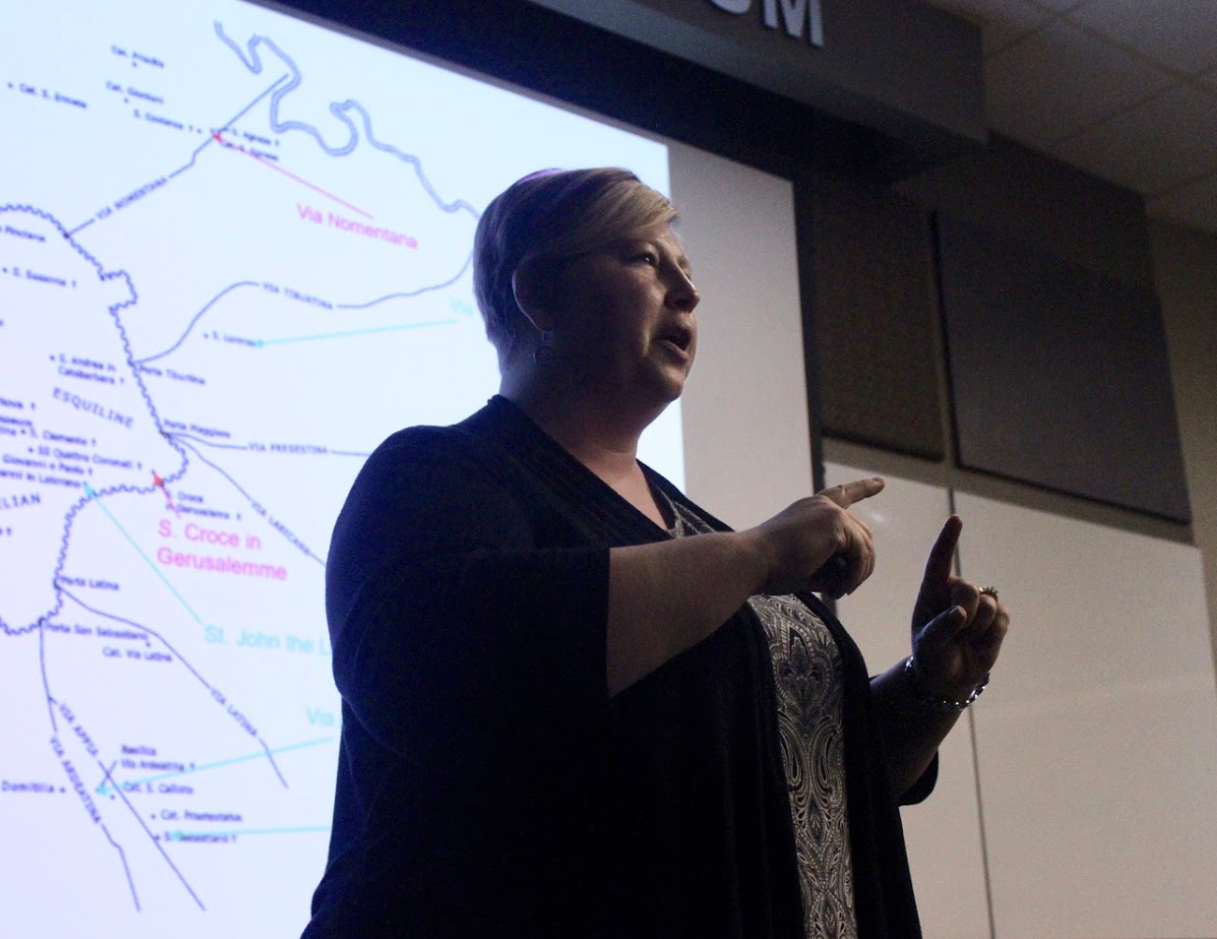While most students choose a minor based off of what they are interested in or what they think may help them find a job after graduation, Winthrop University offers a minor that may give students a leg-up on the competition in the search for employment and revolves around one of the most fascinating times in history: the Middle Ages.
Winthrop’s Medieval Studies program is a minor that was founded in 2010 and serves as an intersection of religion, literature, history and art as they relate to the Medieval period.
The webpage for the Medieval studies minor describes the program as offering students “[t]he opportunity to acquire an understanding of the historical, cultural, and social forces that shaped Western civilization during the Middle Ages.”
Within this particular minor, students have the choice of taking a variety of different courses, some of which may be tailored towards niche interests.
Jo Koster, the Margaret M. Bryant professor of English at Winthrop and a founding member of the Medieval Studies program, gave insight into the progressive nature of the minor in terms of how studying the Middle Ages can be of use to those who aspire to work in digital fields.
“A lot of gamers are interested in the Middle Ages for game design purposes. There was a class about a year ago that focused on writing for Medieval role-playing games,” Koster said.
Koster said that the heavily interdisciplinary nature of the Medieval studies program is a strength in terms of helping students gain a better understanding of the Medieval period. She said that there is a lot that students can take away from studying the Middle Ages — some of which can help us better understand certain mindsets, conflicts and cultural practices that are still in place in the 21st century.
“So many of today’s issues have roots deep within the Middle Ages—the conflicts over the Middle East go back to the Crusades. Our understanding of what women’s roles are in the world, of how we define sexual identities and who gets to wield power and whose laws will rule us, all come largely from the Middle Ages,” Koster said. “They faced environmental crises and pandemics and figured out how to deal with them; we can learn a lot from their efforts. Religion, politics—if you’re interested in any of these areas, you’ll find that the Middle Ages have a lot to do with what we’re seeing in the world now.”
Gregory Bell, a professor of history at Winthrop and the director of the Medieval studies program, emphasized the interdisciplinary nature of Medieval studies at Winthrop and spoke about the importance of Medieval studies in how it can benefit students as they enter the workforce.
“There are all kinds of transferable skills that you get in college that are like the old liberal arts idea that you get from a Medieval studies minor that you hone. It makes you a more well-rounded applicant on the job market,” Bell said. “When you do a minor like Medieval studies, it can really round out how good your candidacy is — plus it’s interesting [to employers].”
The Medieval studies department maintains an active role in on-campus activities, including sponsoring cultural events. One recent cultural event was “Landmark Ladies: Women and the Christianization of Early Medieval Rome.” The event, which took place on March 5, was a lecture given by Aneilya Barnes, a professor of history at Coastal Carolina University, and was held as part of Winthrop’s Medieval Studies Week.
Barnes delivered a fascinating talk to a large and attentive audience on the role of women during the days of the Roman Empire — largely focusing on the rule of Constantine the Great— and pulled from the fields of architecture, history, art and religion to give a well-rounded view of the topic at hand.
Barnes began by emphasizing that understanding Roman culture through architecture and ritual gives scholars the best picture of what daily life was like for women in the Roman Empire. She expanded on this point and said that early Christian practices “began in the home” and were subsequently implemented on a cultural level by Constantine, who was a devout Christian.
While much of Roman history focuses on the power held by male leaders, Barnes explored the positions held by some of the women in Constantine’s family. Barnes said that while Constantine was the sole emperor of Rome by 325 A.D., he spent very little time in Rome, opting instead to build a “power base” in Constantinople. Constantine’s mother Helena, who, according to Barnes, is more remembered for her piety rather than her role in politics, lived in Rome. Barnes said that Helena was given the title of “Augusta” which endowed her with a great deal of power and influence. Furthermore, Barnes said that Helena was “equally responsible for St. Peter’s [Basilica].” Barnes followed this by saying that Constantine’s daughter Constantina was responsible for the mausoleum of St. Agnes. Barnes said that the role of the two women in orchestrating the construction of these sites combined with Constantina’s attendance at the Council of Nicea “overturns that narrative” of Roman women not being involved in politics, including church politics.
As for the future of the Medieval studies minor, both Koster and Bell are optimistic. Both professors stressed the importance of studying and understanding cultures across the globe during the Middle Ages, not just the Western European cultures that tend to make up most of what we think of as Medieval history.
Bell said that he thinks that “Medieval studies is a wonderful minor” and draws students from a wide variety of majors.
“Anyone is welcome as far as I’m concerned,” Bell said.
Koster said that she has “absolutely” seen growth in the Medieval studies minor.
“Of course, we have manuscripts and armor and dragons. So it’s a win-win situation,” Koster said.




